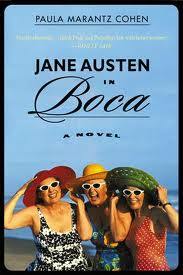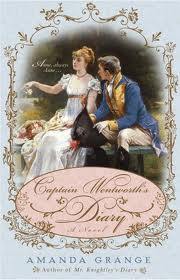Wickham’s Diary by Amanda Grange
George Wickham is a bad man. Let’s get that out of the way right up front. He is vain, self-centered, and doesn’t seem to care how many lives he destroys as he seeks personal gain. Why would we want to read his innermost thoughts? At least, that’s what we thought when we first heard about Amanda Grange’s latest production, Wickham’s Diary. We are on record as being a big fan of Grange’s hero diaries, but we actually want to know what they are thinking. But Wickham? Really? We don’t want him to be redeemed or made sympathetic. He is a bad man.
Fortunately, Amanda Grange resists any temptation to make Wickham terribly sympathetic. He is spoiled, vain, selfish, and hedonistic, just as he ought; but he also is rather amusing, and really, how did he go from being Fitzwilliam Darcy’s “companion of my youth” to someone seeking complete revenge on him, as well as monetary gain, by cutting up poor Georgiana Darcy’s peace? We were hesitant, but this one had us by the second page, buckled up for a bumpy ride.
We meet Wickham (and Darcy) first at age 12. Wickham is not yet the bad man he will become, but he’s well on his way: spoiled by his flighty, extravagant mother, who manipulates her besotted husband, and given by her poor principles–rather than preparing and encouraging her son to make his way in the world, she teaches him to take advantage of the good nature of others.
The Darcys, father and son, are willing and happy to give young George Wickham preference and advantages. At first George is pleased to imagine himself incumbent of the living Mr. Darcy Sr. designs for him, where at least he might live as a gentleman while he looks for an obliging heiress to marry: perhaps Darcy’s cousin Anne, in whom Darcy has no interest. However, Wickham has not the character or training to take advantage of his opportunities, instead resenting the good fortune of his old friend’s birth and falling into dissipated, abandoned ways. He gets by on his charm; the only person immune to it is, of course, Darcy (though there is one scene in which Darcy’s behavior to Wickham absolutely wanted to make us hug Darcy, a novel experience for the Editrix; Darcy, for his many good qualities, is not exactly huggable).
Darcy keeps trying to help Wickham see the folly of his ways, but finally gives up when he understands how Wickham has manipulated and lied to him. We learn how Wickham meets the notorious Mrs. Younge, and how they work together to help him make a headway into Georgiana Darcy’s heart. It’s unfortunate that neither of them has a fortune, for they are a perfect couple, a pair of born grifters who use everyone around them–except each other. Grange does her usual scrupulous job in creating her story around the text as written by Jane Austen. We know that for many readers such fidelity is not necessary, and the introduction of more incident, to use John Murray’s term, is desirable; but there certainly is enough incident in Wickham’s backstory to be getting on with, and we prefer paraliterature authors to play in Jane Austen’s sandbox by Jane Austen’s rules.
Wickham’s Diary is a very short read–we suspect it will be much too short for some readers–and it doesn’t expand tremendously on the story as we know it, but it provides a couple of hours of absorbing entertainment, and as short as it is, we had a few “a-ha!” moments as we recognized another place where the plot clicked perfectly into Jane Austen’s original.
One thing that readers learn from Pride and Prejudice is that there are two sides to every story, and perhaps it is Grange’s greatest genius, and what brings us back to her books time and again, that even while providing what should be one side of the story, the attentive reader still manages get the full picture. So this isn’t the literary equivalent of Wickham sobbing on Oprah’s couch looking for public forgiveness.
Grange gives him a few redeeming values: he loves his mother, not wisely but too well; he doesn’t really want to hurt Anne or Georgiana, but is convinced he will make them deliriously happy as he squanders their fortunes, though perhaps that can be chalked up more to vanity than anything else; and he is a rather amusing fellow. One cannot like him, though one perhaps might want to have a beer with him at the pub. Just keep a hand on your purse while you do so, for George Wickham is a bad man. (If you like the sound of Amanda Grange's Wickham's Diary, you might also like to read Amanda Grange's novel, Mr Darcy's Diary.)
Margaret C. Sullivan is the webmistress of Tilneys and Trap-doors. She finds that she is too much like Mr. Darcy to truly appreciate his many perfections, and thus leaves that appreciation to others while she devotes herself to the rector of Woodston parish.




Leave a comment
This site is protected by hCaptcha and the hCaptcha Privacy Policy and Terms of Service apply.